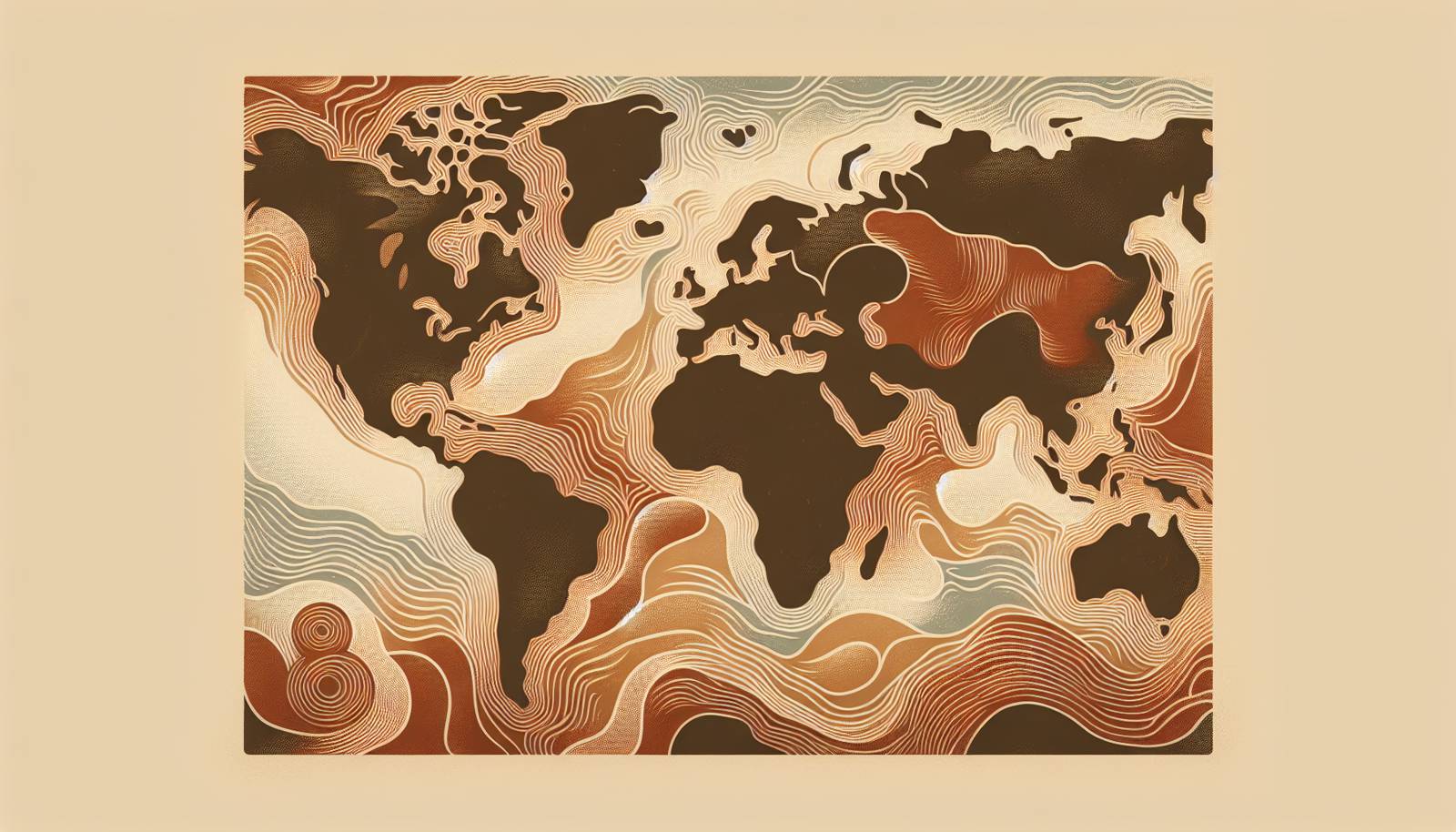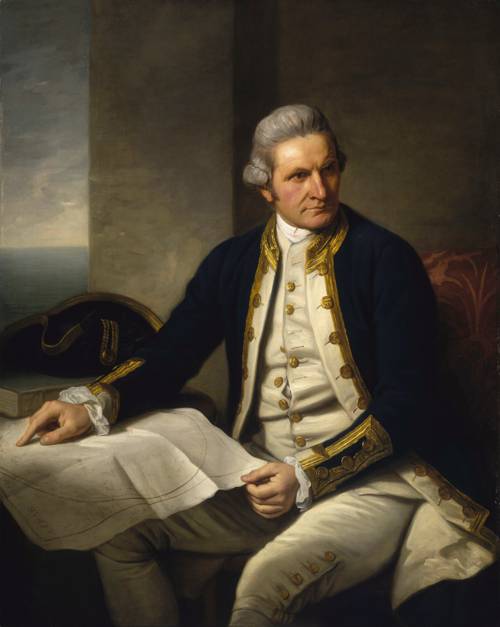
FAQ About James Cook

Who was James Cook?
James Cook was an 18th-century British explorer, navigator, and naval captain known for his voyages to the Pacific Ocean. His expeditions contributed significantly to the European understanding of geography, navigation, and scientific observation, mapping many areas for the first time.

What are some of James Cook's major achievements?
James Cook's major achievements include mapping the coastlines of New Zealand and the eastern Australia, leading expeditions across the Pacific, and circumnavigating New Zealand. He was the first European to make contact with the eastern coastline of Australia and the Hawaiian Islands.

How did James Cook die?
James Cook died in Hawaii on February 14, 1779. He was killed during a conflict with the native Hawaiians at Kealakekua Bay due to tensions that arose between his men and the Hawaiians.

What impact did James Cook's voyages have on science?
James Cook's voyages greatly advanced scientific knowledge in fields such as astronomy, botany, and cartography. He gathered astronomical data during his journeys, collected various specimens for scientific study, and produced highly detailed maps and logs, which were invaluable to European science.

What were the names of the ships used by James Cook?
James Cook used several ships for his voyages, but the most famous ones are HMS Endeavour, HMS Resolution, HMS Adventure, and HMS Discovery. These ships carried him on his extensive explorations of the Pacific Ocean.

When and where was James Cook born?
James Cook was born on October 27, 1728, in the village of Marton, Yorkshire, England.

Did James Cook discover Australia?
James Cook did not discover Australia, as it was already inhabited by Indigenous Australians. However, he was the first European to chart the eastern coastline of Australia extensively in 1770.

What did James Cook discover about New Zealand?
James Cook was the first to chart the coastline of New Zealand comprehensively. He proved that New Zealand was two main islands (the North Island and the South Island) rather than part of a supposed larger southern continent.

Why are James Cook's maps significant?
James Cook's maps were highly significant due to their accuracy and detail. They improved navigation and understanding of the world's geography, particularly in the Pacific region. His maps remained in use for many years and laid the groundwork for future exploration.

How did James Cook's explorations influence European colonialism?
James Cook's explorations provided detailed and accurate maps that facilitated European navigation and sea trade. His voyages opened up new regions for colonization and resource exploitation, playing a significant role in the expansion of the British Empire.

What were some obstacles James Cook faced during his voyages?
James Cook faced various obstacles, including hostile encounters with indigenous peoples, harsh weather conditions, outbreaks of disease among crew members, and logistical challenges in uncharted territories. Despite these challenges, he managed to accomplish remarkable feats of exploration.

Did James Cook keep a journal?
Yes, James Cook kept detailed journals during his voyages. These journals documented his observations, discoveries, and interactions with indigenous peoples and are valuable historical records that offer insights into 18th-century exploration.

How did James Cook contribute to the field of cartography?
James Cook contributed significantly to cartography by creating detailed and accurate maps of previously uncharted or poorly understood regions. His maps of the Pacific Ocean, in particular, corrected many inaccuracies and provided reliable charts for future navigators.

What scientific objectives did James Cook have on his voyages?
James Cook's voyages had several scientific objectives, including recording astronomical observations, studying native flora and fauna, and understanding human cultures. He worked closely with scientists like Joseph Banks to collect specimens and data during the expeditions.

What legacy did James Cook leave behind?
James Cook's legacy includes his detailed maps, advancements in navigation and cartography, and contributions to the scientific study of the natural world. His voyages paved the way for future explorations and greatly expanded European knowledge of the Pacific region.

Which societies did James Cook encounter during his Pacific voyages?
During his Pacific voyages, James Cook encountered various indigenous societies, including the Māori in New Zealand, Aboriginal Australians along the eastern coast of Australia, and native Hawaiians. His interactions varied, from peaceful exchanges to conflicts.

Were there any notable companions on James Cook's voyages?
Among James Cook's notable companions was botanist Joseph Banks, who accompanied him on the HMS Endeavour voyage. Banks collected numerous plant species and detailed notes that significantly contributed to the field of botany.

Did James Cook's voyages have any negative consequences?
While James Cook's voyages contributed to science and navigation, they also had negative consequences, including the spread of diseases to indigenous populations and the beginning of European colonial exploitation in many regions he explored.

What were James Cook's early life and career like before his famous voyages?
Before his famous voyages, James Cook began his career in the British Merchant Navy, where he learned navigation and seamanship. He joined the Royal Navy, where his skills led to rapid promotions. His early work included surveying Newfoundland, which showcased his talent in cartography and exploration.
